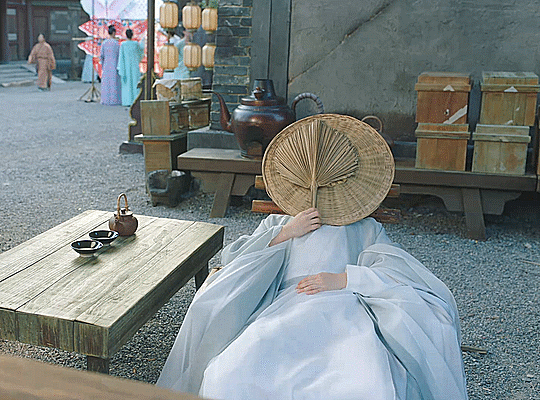@MTH123
Wow. That's a particularly great point. It's sad. I have heard that war can become more about fighting for your fellow brothers than the cause. But, in this case, they did have a cause originally. So, apparently, they lost the forest through the trees at some point. War doesn’t require people to fight to their certain deaths with no other option. A normal response would have been to be happy that their people were living in a better world and to go back to live with them. Then, XL would automatically have been free to pursue XY.
Tong Hua does seem to like the concept of undying loyalty to an army. XL did this for his rebel army. In the prequel, XY’s father did this for his army too. It made XY’s parents enemies on the battlefield and caused them both to “die” in the same battle. Come to think of it, there are other parallels between XL’s situation and XY’s father’s situation too that caused them to be undyingly loyal.
It took me the longest time to figure out that XL would never have pursued a relationship with XY, because of his commitment to his army. I was also slow to realize that XL knew that he would be fighting to his certain death. For example, XL could have asked ZX for anything to save XY’s life. He could have asked him to leave the rebel army alone. But, he didn’t. He asked for a burial place. Why? So, his fellow soldiers could die honorably on the battlefield? But, is it really honorable to die in this case? I would say that it’s more sad than honorable.
The concept of being filial to elders in ancient Chinese culture can be strong too. TSJ pushed back hard against his grandmother. But, he ultimately lost to her on every count. XY readily understood every time he lost too. (I think you’re right about XY.) XL probably didn’t even have an opportunity to push back against Gong Gong, because he had become delusional. So, XL was stuck too.
I think the idea / philosophy is that if you fight only for things you can win, it's about gaining a result -- it's an intellectual exercise. If you fight for a lost cause, it can only be about principle and sacrifice -- it's a test of heart and soul. The ideal of sacrifice, both for the greater good and for principle carries more weight in Asia than it does in the West, I think.
In Japan, Chūshingura aka 47 Ronin is a popular and enduring story that illustrates some of the motivations of Xiang Liu and the rebel Chenrog army and even Gong Gong (I can't say for sure since we haven't seen in the drama and I haven't read the book). After their lord was forced to kill himself, under shady circumstances, these samurai retainers, who swore personal loyalty to their lord, don't seek new lords, but endure hardship and wait years before taking revenge and killing the noble responsible for their lord's death, knowing they will die for doing so. Likewise, because of personal loyalty, because Gong Gong is his lord (or his father), XL has to follow him to death.
In modern times the idea of dying for a principle or honor isn't viewed well, for obvious reasons, and it can be seen as selfish. I mean, they don't talk about what happened to the families of the 47 Ronin. It was one of the interesting debates of Game of Thrones' first season, with Ed Stark's refusal to compromise and dying. He kept his honor and died with his principles, but so much of the death and destruction that happened afterwards could by laid at his feet for this decision.


 KJCTdramafan:
KJCTdramafan:



 Symbolika1:
Symbolika1:

